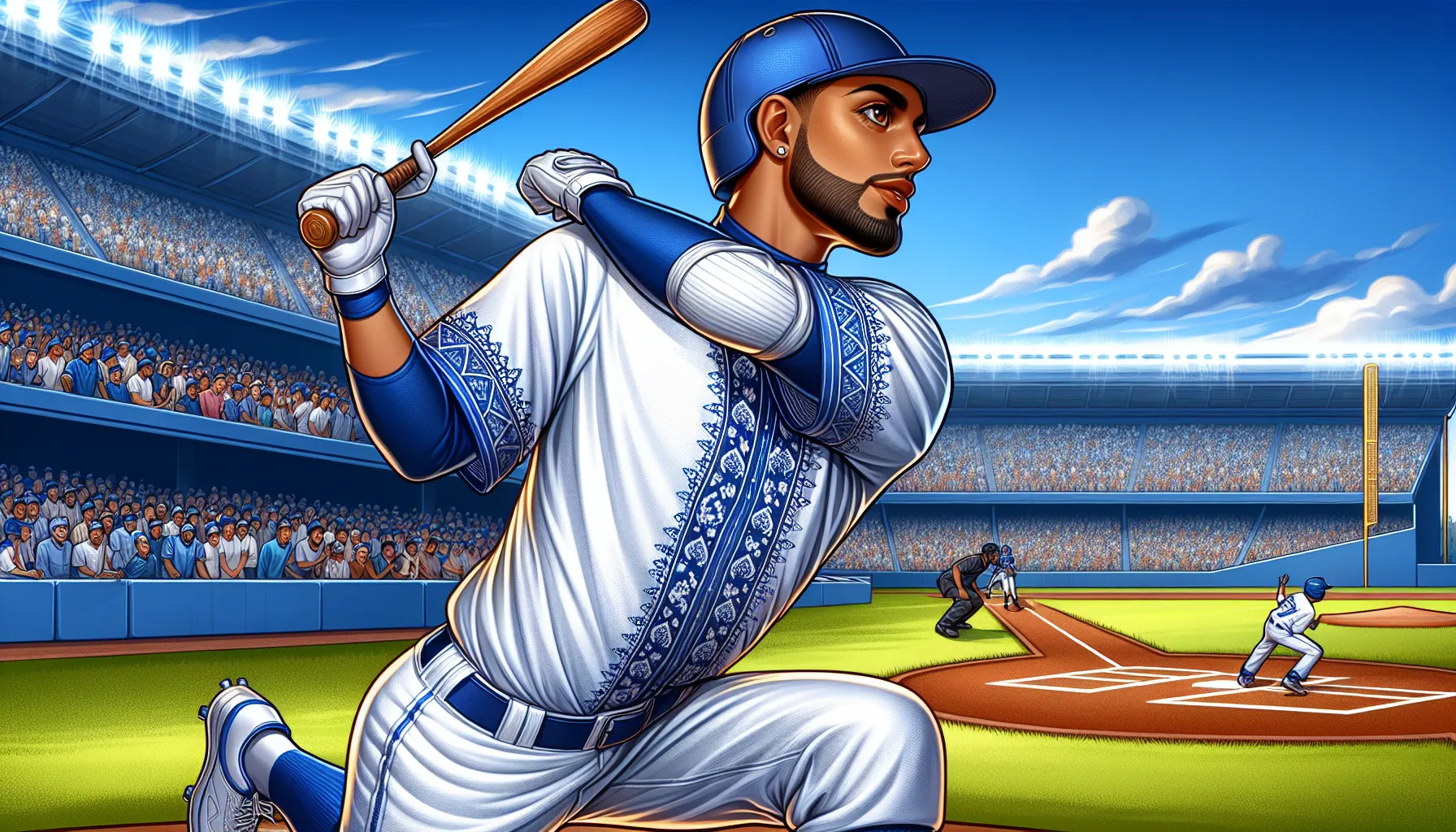
When it comes to debating the toughest sport, baseball often finds itself at the center of the conversation. At first glance, it might not seem as physically demanding as football or as fast-paced as basketball, but don’t let that fool you. Baseball challenges athletes in ways that go beyond brute strength or speed.
Think about it—hitting a 90 mph fastball is often called the hardest feat in sports. Add in the mental focus required for every pitch, the precision needed for fielding, and the endurance to perform over a grueling 162-game season, and you’ve got a sport that tests every aspect of an athlete’s ability. So, is baseball truly the hardest sport? Let’s break it down.
What Makes A Sport Hard?
Understanding what makes a sport hard depends on analyzing various components that test athletes’ capabilities. These components include physical demands, mental challenges, skill requirements, and the level of competition.
Physical Demands
Sports require varying degrees of physical endurance, strength, speed, and agility. For example, football involves high-impact contact and explosive movements, while swimming requires sustained cardiovascular endurance. In baseball, sprinting to bases, throwing with velocity, and quick lateral movements during fielding highlight significant physical challenges. The blend of static rest periods and sudden activity further tests muscular and cardiovascular systems.
Mental Challenges
Mental toughness in sports determines success under pressure. Precision, focus, and decision-making feature prominently. For example, in baseball, a batter facing a 90+ mph pitch has milliseconds to decide to swing. The continuous mental recalibration during games and maintaining composure across lengthy seasons push athletes mentally. This aspect mirrors the split-second strategies in basketball or the intense focus in golf.
Skill Requirements
Skill execution often separates elite athletes from others. In baseball, hitting a fastball with pinpoint accuracy against varying pitches, such as sliders or curveballs, demonstrates immense skill. Mastery over repetitive movements, like pitching mechanics, requires constant refinement. Sports like gymnastics also demand technical precision, but baseball uniquely combines these skills with situational adaptability.
Level Of Competition
Higher levels of competition naturally amplify a sport’s difficulty. Professional leagues, like MLB, showcase the most skilled global players, intensifying challenges faced by athletes. The level of competition in baseball rivals other sports, like soccer and basketball, where talent pools include international stars. Competing against the best mandates unmatched discipline and excellence.
Examining Baseball’s Difficulty

Baseball poses unique challenges that test players across multiple dimensions. From physical capabilities to mental resilience, the sport demands a blend of attributes rarely seen collectively in other athletic disciplines.
Physical Requirements In Baseball
Baseball requires a mix of speed, strength, and agility. Sprinting to outrun a throw to first base, generating bat speed to hit a 95 mph fastball, and fielding ground balls with quick lateral movements are physically intensive. Pitchers often throw at velocities exceeding 90 mph, which strains the arm and shoulder muscles. Over a 162-game MLB season, endurance plays a key role in maintaining peak performance.
Mental Toughness In The Game
Mental toughness in baseball is critical due to the sport’s inherently failure-heavy nature. Batters, succeeding only three times out of ten, must maintain confidence and focus despite setbacks. Decision-making under pressure is also paramount, such as reacting to rapidly changing scenarios during plays or managing split-second pitch recognition at the plate. The game’s slow pace further tests your concentration over extended periods even with less innings in minor leagues.
Skill Precision And Techniques
Baseball demands precise hand-eye coordination and technical mastery. Hitting a pitch with a round bat requires impeccable timing and accuracy, even more so when facing deceptive breaking balls or high-speed fastballs. Pitching mechanics involve precise positioning, grip control, and release angles to execute specific pitches like sliders or curveballs effectively. Fielding necessitates sharp reflexes and consistent throwing accuracy to support defensive plays.
Impact Of The Game’s Unpredictability
Baseball’s unpredictability adds another layer of complexity. The ball’s trajectory can change dramatically based on pitch type, spin, or environmental factors such as wind. Defenders must anticipate variable outcomes like irregular bounces or unexpected base-running strategies. This unpredictability forces players to stay prepared for a wide range of scenarios, enhancing the challenges of performance consistency.
Comparing Baseball To Other Sports

Assessing whether baseball is the hardest sport requires analyzing how it stacks up against others in physical intensity, mental complexity, and skill demands.
Physical Intensity Of Other Sports
Sports like football, basketball, and hockey involve continuous physical exertion and high-impact collisions. Football players endure tackles that can generate over 1,600 pounds of force, testing their strength and resilience. Basketball requires constant sprinting and lateral movements over a 48-minute game, with players covering up to 2.5 miles per game. Hockey combines explosive skating, stick handling, and enduring hits at speeds over 20 mph.
Baseball’s physical intensity contrasts due to its short bursts of action, such as a pitcher generating over 5,400 degrees per second of shoulder rotation or a fielder sprinting to catch fly balls. While less continuous, the explosive efforts can strain muscles and require sharp recovery.
Mental Complexity Across Sports
All sports demand mental acuity, but the type and degree vary significantly. Football involves quick thinking to execute defensive and offensive strategies in a matter of seconds. Basketball players process game dynamics continually, adjusting positioning and timing in a fluid, fast-paced environment. Golf challenges players’ ability to maintain focus and precision amid prolonged periods of pressure.
Baseball’s mental complexity stems from anticipation and decision-making under extreme uncertainty. A batter has approximately 0.4 seconds to decide on swinging at a 95-mph pitch, while pitchers must strategically outthink opponents. The slow gameplay pace adds yet another layer of mental endurance, testing concentration for hours.
Skill-Based Comparisons
Skill execution highlights distinct challenges across sports. Tennis hinges on footwork, timing, and precision in unrelenting one-on-one rallies. Soccer involves ball control, passing accuracy, and stamina, with players completing up to 70% successful passes in matches. Boxing requires fine motor coordination and strategic strikes while withstanding physical punishment.
Baseball distinguishes itself through the precision hitting of pitches, where achieving a .300 batting average is rare and indicates elite performance. Fielders, particularly infielders, react to ground balls traveling over 100 mph, balancing instinct and refined skill. Pitching demands biomechanical mastery, as a glove-side miss by an inch can lead to costly errors.
Perspectives From Athletes And Experts

Athletes and experts frequently weigh in on baseball’s difficulty compared to other sports. Their insights offer a deeper understanding of the physical and mental challenges involved.
Opinions From Baseball Players
Baseball players emphasize the sport’s mental and technical rigor. Many hitters describe the difficulty of consistently making contact with pitches traveling over 90 mph, compounded by movement like sliders and curveballs. Hall of Famer Ted Williams famously stated that hitting a baseball is the single hardest task in sports. Pitchers like Justin Verlander have cited the immense precision required to locate pitches while accounting for batter tendencies, umpire zones, and environmental factors.
Position players highlight the split-second reactions needed for defense. For example, infielders field high-speed ground balls, often traveling over 100 mph off the bat, and outfielders track fly balls impacted by wind, lighting conditions, and spin. Players frequently note the mental endurance required during a 162-game season.
Insights From Other Sports Professionals
Athletes in other sports acknowledge baseball’s unique demands. Basketball’s LeBron James has remarked on the incredible skill necessary to hit a fast-moving pitch, likening it to solving a puzzle in milliseconds. Tennis legend Roger Federer has pointed out the visual tracking skills baseball requires, comparing them to those needed to return high-speed serves.
Hockey players, including Wayne Gretzky, have noted similarities between hitting in baseball and shooting in hockey, in terms of timing, precision, and reaction speed. However, many agree that baseball’s extensive failure rates test mental toughness like no other sport.
Statistical Analyses On Sport Difficulty
Statistical studies highlight baseball’s exceptional difficulty by quantifying its challenges. Hitting a baseball effectively has been analyzed as one of the most challenging athletic feats, with professional hitters achieving a batting average of roughly .250 to .300 or succeeding three times in ten attempts. Pitchers often throw fastballs exceeding 95 mph, giving hitters just 0.4 seconds to decide whether or not to swing.
Fielding adds further complexity. Reaction times for infield plays average between 0.25 and 0.3 seconds, especially for third basemen. Over a full season, players face an average of 5,000 to 6,000 pitches, demanding sustained focus and physical readiness. This combination of precision, rapid decision-making, and endurance sets baseball apart even when compared to other physically intense sports.
Conclusion
Baseball challenges athletes in ways that are both unique and demanding. Its blend of physical bursts, mental endurance, and unmatched precision creates a sport that tests every facet of an athlete’s ability. While comparisons to other sports will always spark debate, baseball’s combination of skill, strategy, and resilience makes it stand out. Whether or not it’s the hardest sport may depend on how you define difficulty, but there’s no denying the remarkable demands it places on those who play it.
Frequently Asked Questions
What makes baseball one of the hardest sports?
Baseball is considered one of the hardest sports due to its unique combination of mental, physical, and skill-based challenges. Players must hit fastballs traveling at over 90 mph, which requires immense precision and decision-making in under 0.4 seconds. The sport also demands sprinting, throwing, and lateral movements, alongside mental toughness to handle failures and stay focused over long periods.
How does baseball compare to other sports in physical demands?
Unlike continuous-action sports like football or basketball, baseball involves short bursts of explosive effort such as sprinting, throwing, or swinging. While it lacks sustained physical intensity, these bursts engage specific muscle groups, requiring power, speed, and precision.
Is hitting a baseball really that difficult?
Yes! Hitting a baseball is often cited as one of the hardest feats in sports. Batters face pitches traveling at high speeds, with only 0.4 seconds to decide, swing, and make contact. Achieving a .300 batting average is considered exceptional, highlighting the skill and difficulty involved.
Why is mental toughness important in baseball?
Baseball’s slow pace and failure-heavy nature test players’ mental endurance and confidence. Batters succeed only 30% of the time, meaning resilience and focus are necessary. Players must also anticipate pitches and adapt quickly under pressure, making mental sharpness crucial.
What physical skills are unique to baseball?
Baseball requires explosive bat speed to hit pitches, quick lateral movements for fielding, and powerful throws. These skills demand a combination of strength, agility, and precision that differ from continuous-motion sports.
How does baseball challenge concentration?
The slow pace of baseball extends periods of inactivity, requiring players to maintain focus for long stretches. Fielders must react instantly to unpredictable plays, and batters must make split-second decisions — all while staying mentally sharp throughout the game.
Why do experts call baseball the hardest sport?
Experts like Hall of Famer Ted Williams consider baseball uniquely challenging due to the precision and mental fortitude required. Hitting fastballs, mastering intricate mechanics, and maintaining composure under intense pressure set baseball apart from other sports.
What role does failure play in baseball?
Failure is a significant aspect of baseball. Even elite players succeed in only 3 out of 10 at-bats, making resilience a critical skill. The ability to learn from mistakes, maintain confidence, and stay focused separates successful players from the rest.
How does baseball incorporate both physical and mental endurance?
Baseball demands physical explosiveness for short bursts like hitting, running, and throwing. At the same time, players endure a mentally grueling season with extended games requiring intense focus and quick decision-making, blending physical and mental stamina.
Why is baseball considered a skill-heavy sport?
Baseball’s success hinges on precise skills, such as hitting a fastball, which demands exceptional hand-eye coordination, and mastering pitching mechanics. These skills take years to develop, showcasing the technical rigor of the sport.
